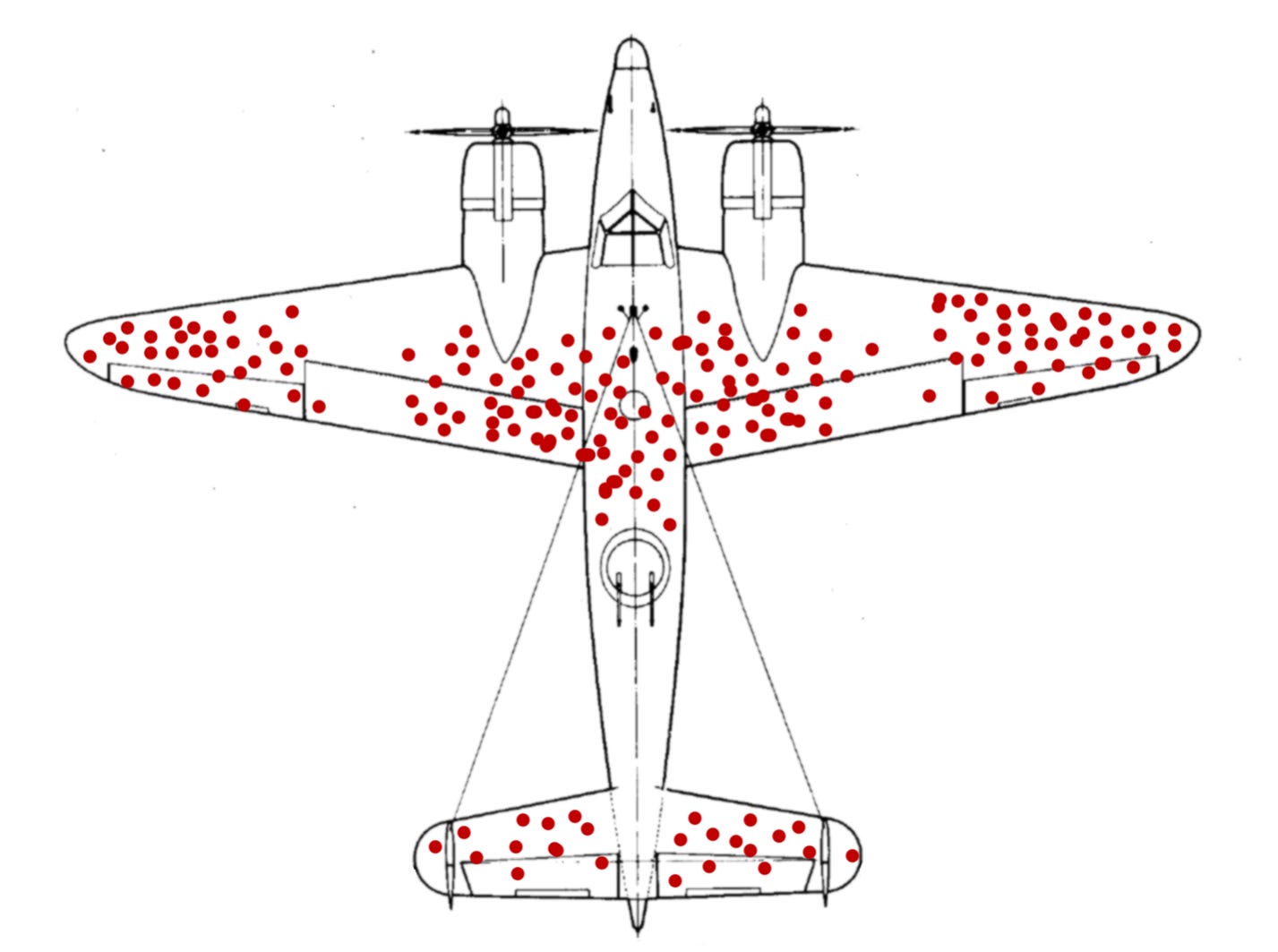On thinking and bullet holes

Image: Donald Giannatti
A good airforce strategy is to stop planes from going down.
This is exactly what the allies aimed for in the second World War. They gathered as much data as they could; including the bullet-hole distribution on the planes that made it back. And that makes sense, right? If one is going to add armour (typically heavy) to a plane (typically weight-sensitive), one should lean towards frugality.

Image: Illustration of hypothetical damage pattern on a WW2 bomber, WikiMedia Commons
The obvious thing to do would be to add armour to the areas that are riddled with bullets holes. But, a Hungarian mathematician named Abraham Wald, doing that wouldn’t have made much of a difference.
He argued that the best place to put armour was where the bullets weren’t.
And his reasoning was brilliant: they could only study bullet holes in the planes because they made it back. Therefore, the critical areas to protect are those where bullet holes were not present — the planes that got hit there didn’t make it.
This is a great illustration of how the first and obvious answer is not necessarily the best one. It could be, sure, but that can only be established with a little more digging. Daniel Kahneman covers this phenomenon quite extensively in his book, Thinking Fast, Thinking Slow, an incredible read if you haven’t already.
He uses a simpler example though. Kahneman suggests thinking of the best sportsman of all time. The first answer that comes to mind is usually fairly good—popular mentions like Ali, Schumacher, or Woods. But if you give it a good think, better examples emerge. Like Jim Brown, who was among the best that ever lived in two sports; he entered the halls of fame for both lacrosse and football. Or Jim Thorpe, who won Olympic golds in the pentathlon and decathlon, played professions football, basketball, and baseball. Must be something in the name.
Or Ronaldo, Federer, Gretzky or Rhodes. The list goes on.
And that’s the point really. The first answer is the one that is top of mind, the most recent, or the most popular. But the second one allows for some time to make distinctions. What do we mean by “best”? Are we talking one sport or multi-sports? About world championships or Olympics? Team sports or individual sports?
This second-order thinking is far too scarce in our day and age. Yet it is critical. We live in a world where there is an abundance of information and not all of it is quality. In fact, due to the sheer magnitude, not all of it can be quality. This creates a burden on anyone consuming information to process it more thoroughly. But, because there is so much of it, we don’t have time to.
And it results in the exact issues we are facing as a society right now. Reasonable discourse is replaced with superficial debates. Arguments are based on their political value rather than their actual value.
I am not suggesting that an issue is not valid because it is political or popular, nor am I suggesting the same for the opposing arguments. But I am suggesting that we need to be able to consider either one based on their validity. If a view is controversial, it is often attacked without due consideration. Moreover, the person holding the view is personally targeted.
Considering the limitations of first-order thinking, and how common it is (as opposed to higher-order thinking), we are treading a very dangerous line.
Just like Wald, we need to consider beyond the obvious. Facts are only relevant if we know what they mean. It is that meaning that holds the key to real progression. That’s what we need to reinforce.
Otherwise, we risk our society going down.
